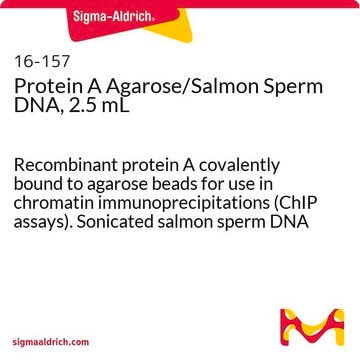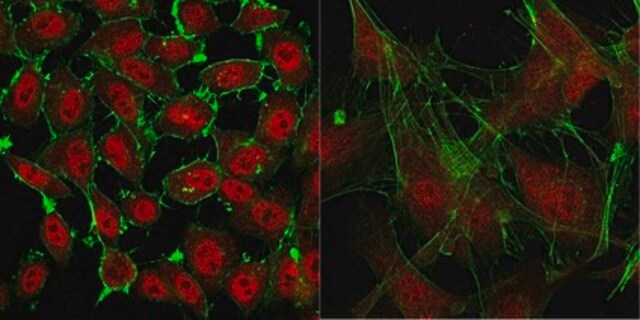CP01
Anti-Actin (Ab-1) Mouse mAb (JLA20)
liquid, clone JLA20, Calbiochem®
About This Item
Recommended Products
biological source
mouse
Quality Level
antibody form
ascites fluid
antibody product type
primary antibodies
clone
JLA20, monoclonal
form
liquid
contains
≤0.1% sodium azide as preservative (actin antibody only, CP01-100UL)
species reactivity (predicted by homology)
all
manufacturer/tradename
Calbiochem®
storage condition
OK to freeze
isotype
IgM
shipped in
wet ice
storage temp.
−20°C
target post-translational modification
unmodified
Gene Information
human ... ACTB(60)
General description
Immunogen
Application
Immunofluorescence (1:10000, see application references)
Recomended dilution for secondary antibody (0.05 µg/ml, 1:2000 dilution)
Warning
Physical form
Reconstitution
Analysis Note
All animal cell lines
Other Notes
Lin, J.J. 1982. Cold Spring Harbor Symp. on Quant. Biol.46, 769.
Lin, J.J. 1981. Proc. Natl. Acad. Sci.78, 2335.
Goldman, R.D., et al. 1979. Ann. Rev. Physiol.41, 701.
Goldman, R., et al. (eds.) 1976. Cold Spring Harbor Conference on Cell Proliferation, Books A-C.
Legal Information
Not finding the right product?
Try our Product Selector Tool.
Storage Class Code
11 - Combustible Solids
WGK
WGK 1
Flash Point(F)
Not applicable
Flash Point(C)
Not applicable
Certificates of Analysis (COA)
Search for Certificates of Analysis (COA) by entering the products Lot/Batch Number. Lot and Batch Numbers can be found on a product’s label following the words ‘Lot’ or ‘Batch’.
Already Own This Product?
Find documentation for the products that you have recently purchased in the Document Library.
Our team of scientists has experience in all areas of research including Life Science, Material Science, Chemical Synthesis, Chromatography, Analytical and many others.
Contact Technical Service








